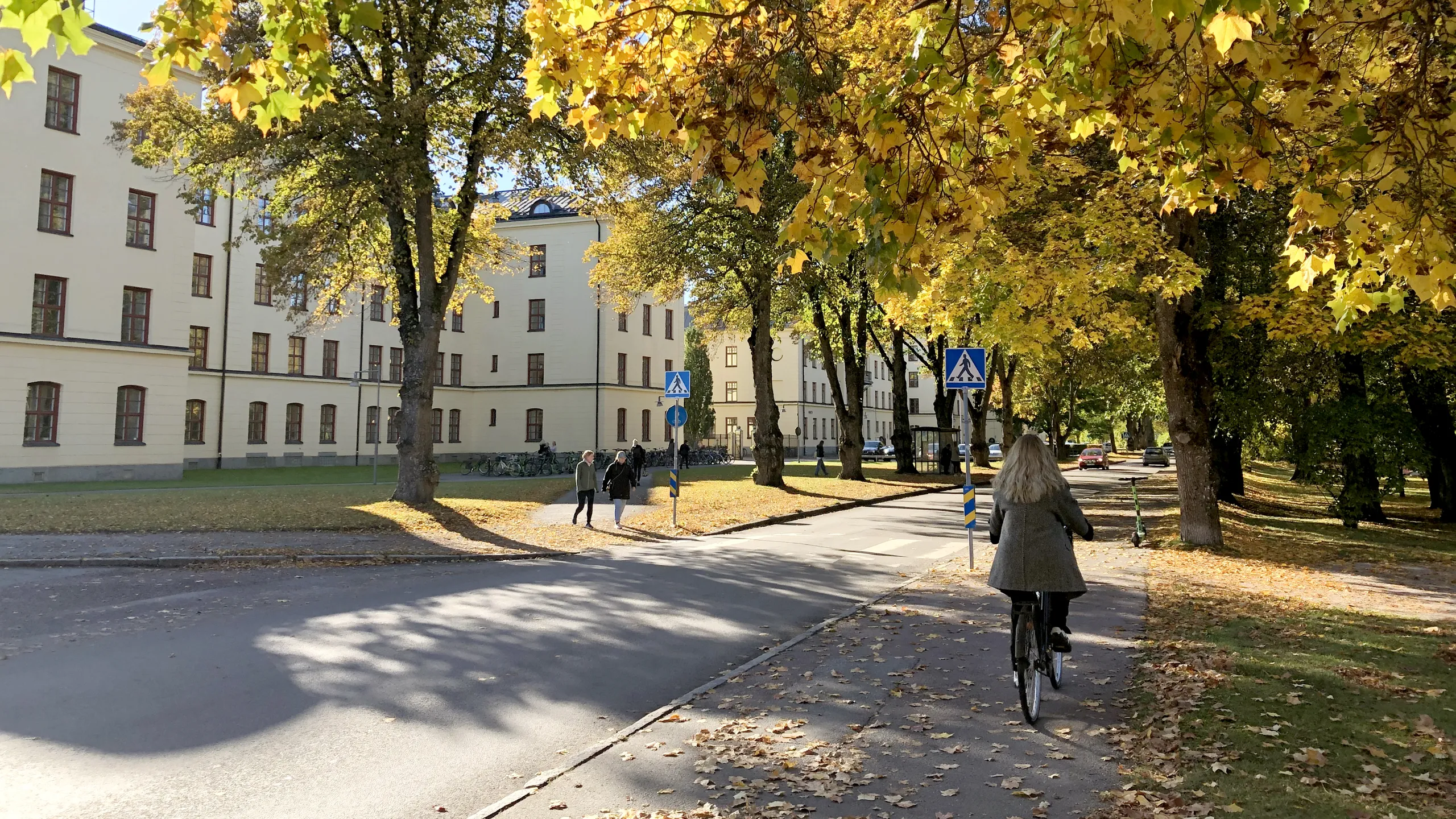
Education and Research at a Scenic Campus
The University of Gävle has approximately 19 000 students and more than 60 first-cycle and second-cycle study programmes. 330 freestanding courses are offered in the fields of Humanities, Social and Natural Sciences and Technology.
About the University
The university is beautifully located next to the Gavle River and the Boulogner Forest, just minutes from the city centre. With all programmes gathered in one place, students, teachers and researchers are close to each other. A university with regional roots and a network of contacts all over the world.
The university is part of EU GREEN, a co-operation between nine higher education institutions in nine European countries: Sweden, France, Ireland, Italy, Poland, Portugal, Romania, Spain and Germany.
The first choice for all who want to make a difference
The university's vision "The first choice for everyone who wants to make a difference" speaks clearly about our focus - we work to drive change and make a difference in society. We are Sweden's most popular university in terms of first-choice applicants to programmes compared to other universities in Sweden. The university is a major employer in the county with 750 employees, most of whom are teachers and researchers.
Quick facts
- Number of students: 19,000
- Number of staff: 750
- Number of postgraduate students: 122
- Degree programmes and postgraduate courses: about 60
- Number of courses: about 330
Research that tackle societal challenges
Our research is to a large extent conducted within our third-cycle programmes. The University has degree-awarding powers for third-cycle qualifications in eleven subjects that are thematically connected to the strategic research areas. The subjects are:
- Caring Science
- Curriculum studies
- Electrical Engineering
- Energy Systems
- Environmental Psychology
- Geospatial Information Science
- Indoor Environment
- Industrial engineering and management
- Occupational health sciences
- Social work
- Sustainability Science

Education
Education that leads to jobs. From first-cycle studies to advanced research, on campus or online.

Research
Through interdisciplinary research in four strategic areas, we address many of society's challenges.

Collaboration
We engage with the wider community to contribute to development and innovation.
This page was last updated 2024-04-18
